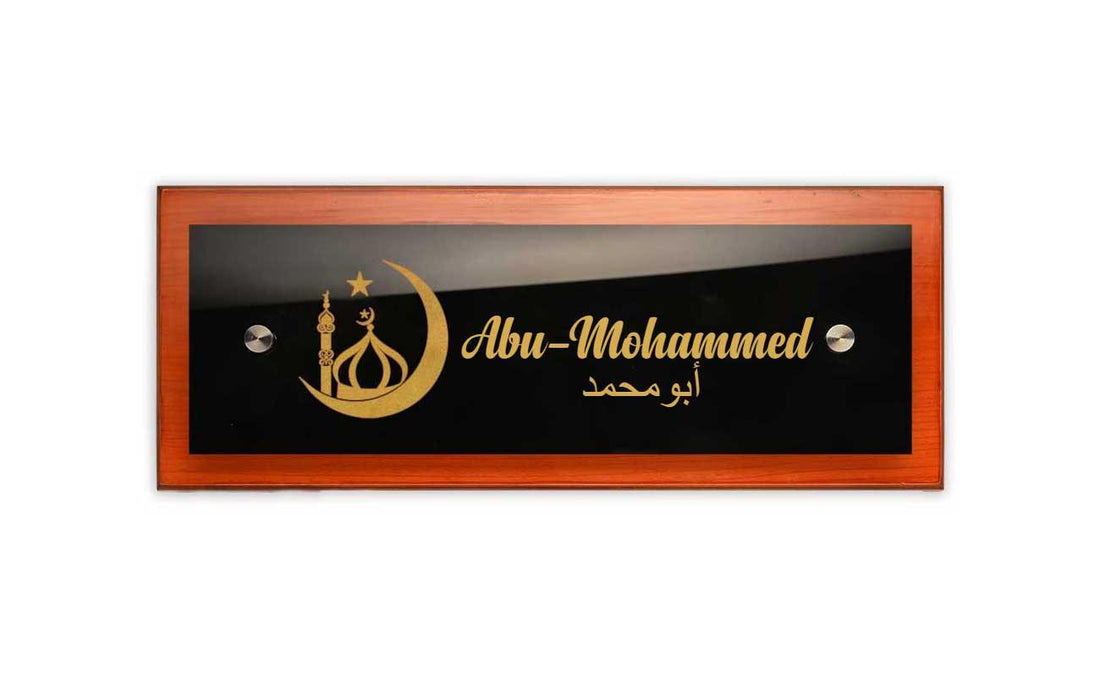
Why are some Arabic names prefixed with the term “Abu”, when it means means “father of”?
Share
Names and nomenclatures are important, interesting and fun. It’s why we make it a point to put a lot of thought into the ideas for the products that showcase them. Happily, all this hard work has helped us become India’s most accomplished maker of name plates and, in the process, introduced us to hundreds of names, nicknames, family names, and stories connected to tens of thousands of names. Many of these stories are rather intriguing and we think worth sharing with you; something we are going to do in a series of blog posts centered around answers to quirky questions like ‘Are Dwivedis, Trivedis, and Chaturvedis related?’ or ‘Why do most Sindhi surnames ends with –ani?’ or ‘Why do some surnames have two capital letters?’, and more. And on that note, let’s get right into the history of name-calling.
The name Abu-Mohammed, for example, means Father of Mohammed. A Palestinian or Syrian man tends to be known to close friends as the Abu of his eldest son. In which case, how can a newborn be named Abu-Mohammed?
The answer’s quite simple. It is often presumed that a Palestinian man will name his first son after his father. So suppose Mohammed has a son, he will presume that his yet-to-be-born grandson will also be named Mohammed by his son. And basis this presumption, he would name his son as Abu-Mohammed. So essentially the name Abu-XYZ is given to a child under the presumption that the child will name his son as XYZ in the future.
Then there are other roots as well which reference Islamic history, both familiar and oblique.
From the time he is 20 or so, for instance, every Mohammed is also Abu Jassim, because the Prophet Mohammed’s son was called Jassim. Every Ali is Abu Hussein because the Prophet’s son-in-law, Ali, named his son Hussein.
Every Omar will be called Abu Khattab after the Prophet Mohammed’s companion, the second caliph, Omar bin al-Khattab. And every Tariq is known as Abu Ziyad, after Tariq ibn Ziyad, the great Muslim conqueror of Spain.
